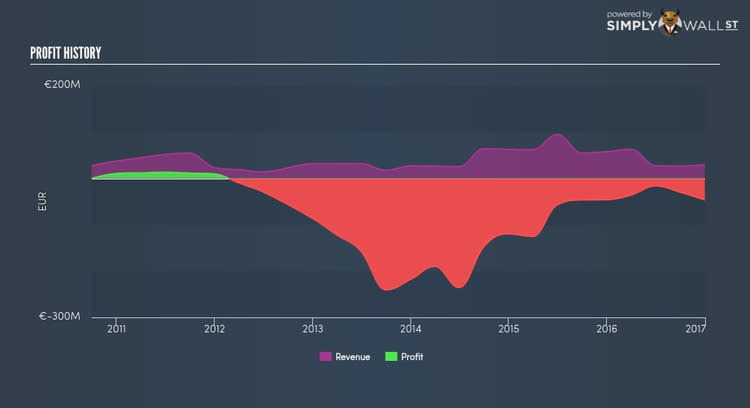Plaza Centers NV (LSE:PLAZ): Risks You Need To Consider Before Buying

For Plaza Centers NV’s (LSE:PLAZ) shareholders, and also potential investors in the stock, understanding how the stock’s risk and return characteristics can impact your portfolio is important. Broadly speaking, there are two types of risk you should consider when investing in stocks such as PLAZ. The first risk to consider is company-specific, which can be diversified away when you invest in other companies in the same industry as PLAZ, because it is rare that an entire industry collapses at once. The second type is market risk, one that you cannot diversify away, since it arises from macroeconomic factors which directly affects all the stocks in the market.
Different characteristics of a stock expose it to various levels of market risk. A popular measure of market risk for a stock is its beta, and the market as a whole represents a beta value of one. Any stock with a beta of greater than one is considered more volatile than the market, and those with a beta less than one is generally less volatile.
See our latest analysis for PLAZ
What does PLAZ's beta value mean?
Plaza Centers N.V’s five-year beta of 1.1 means that the company’s value will swing up by more than the market during prosperous times, but also drop down by more in times of downturns. This level of volatility indicates bigger risk for investors who passively invest in the stock market index. Based on this beta value, PLAZ will help diversify your portfolio, if it currently comprises of low-beta stocks. This will be beneficial for portfolio returns, in particular, when current market sentiment is positive.
Does PLAZ's size and industry impact the expected beta?
PLAZ, with its market capitalisation of GBP £10.28M, is a small-cap stock, which generally have higher beta than similar companies of larger size. In addition to size, PLAZ also operates in the real estate industry, which has commonly demonstrated strong reactions to market-wide shocks. Therefore, investors may expect high beta associated with small companies, as well as those operating in the real estate industry, relative to those more well-established firms in a more defensive industry. This is consistent with PLAZ’s individual beta value we discussed above. Next, we will examine the fundamental factors which can cause cyclicality in the stock.
Can PLAZ's asset-composition point to a higher beta?
During times of economic downturn, low demand may cause companies to readjust production of their goods and services. It is more difficult for companies to lower their cost, if the majority of these costs are generated by fixed assets. Therefore, this is a type of risk which is associated with higher beta. I examine PLAZ’s ratio of fixed assets to total assets to see whether the company is highly exposed to the risk of this type of constraint. Given that fixed assets make up less than a third of the company’s total assets, PLAZ doesn’t rely heavily upon these expensive, inflexible assets to run its business during downturns. As a result, the company may be less volatile relative to broad market movements, compared to a company of similar size but higher proportion of fixed assets. However, this is the opposite to what PLAZ’s actual beta value suggests, which is higher stock volatility relative to the market.
What this means for you:
Are you a shareholder? You could benefit from higher returns during times of economic growth by holding onto PLAZ. Its low fixed cost also means that, in terms of operating leverage, it is relatively flexible during times of economic downturns. Consider the stock in terms of your other portfolio holdings, and whether it is worth investing more into PLAZ.
Are you a potential investor? Before you buy PLAZ, you should take into account how their portfolio currently moves with the market, in addition to the current economic environment. PLAZ may be a valuable addition to portfolios during times of economic growth, and it may be work looking further into fundamental factors such as current valuation and financial health.
Beta is one aspect of your portfolio construction to consider when holding or entering into a stock. But it is certainly not the only factor. Take a look at our most recent infographic report on Plaza Centers N.V for a more in-depth analysis of the stock to help you make a well-informed investment decision. But if you are not interested in Plaza Centers N.V anymore, you can use our free platform to see my list of over 50 other stocks with a high growth potential.
To help readers see pass the short term volatility of the financial market, we aim to bring you a long-term focused research analysis purely driven by fundamental data. Note that our analysis does not factor in the latest price sensitive company announcements.
The author is an independent contributor and at the time of publication had no position in the stocks mentioned.

